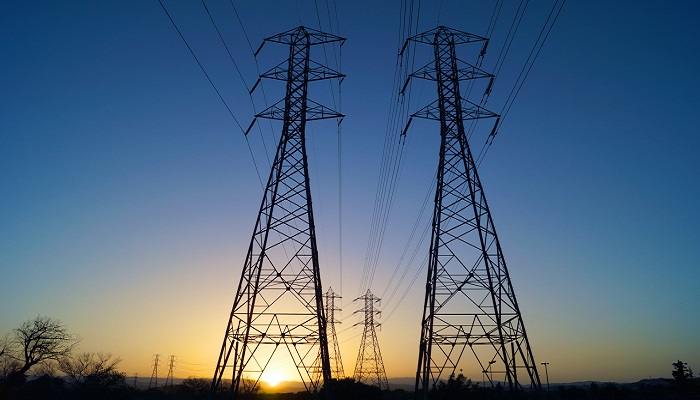The US power grid happens to be facing a sharp risk of buckling in the event of major storms as well as extended cold snaps this coming winter, as per the regulator that goes on to track the electricity systems, with much of the nation already being threatened with outages because of severe weather.
A sweeping part of the country that goes on to extend right from Texas to the Canadian border is not well equipped to handle tough weather conditions, according to a warning given by the North American Electric Reliability Corporation.
The report happens to be a sobering assessment of a power grid that continues to suffer due to underinvestment, despite the promises made by regulators and also politicians to shore it up due to the deadly blackouts that have taken place in the recent years.
Much of North America happens to be at an elevated risk when it comes to insufficient energy supplies this winter and is highly exposed to the risks of energy emergencies when it comes to extreme weather conditions, NERC, a regulator, wrote in a statement that went on to accompany the report.
The power grid has traditionally gone on to face its greatest issues in the summer heat. However, a confluence of elements in recent years has led the grid to be unstable because of severe winter weather, NERC officials said. They added that they have seen the system become more susceptible to the winters, added director of reliability assessment and performance analysis at NERC, John Moura. For decades, the system has been built as well as planned around summer peaks.
A major concern happens to be the potential disruption when it comes to natural gas generation, as well as the fact that the infrastructure that delivers fuel to them gets destabilized because of the strain of severe cold. It is indeed a pattern that took place in 2022 during Elliott, the winter storm that caused outages across the eastern US right before Christmas.
In Texas, where the lawmakers aimed to fix the grid post, dozens of Texans passed away due to prolonged blackouts pushed by severe winter in 2021. The grid continues to remain unstable heading into another cold season. NERC has gone on to warn the state, where voters approved a sweeping plan so as to fund more power generation, happens to be at higher risk of energy shortages this winter as compared to previous years as it is not bringing new power online so as to meet the state’s rising demand and its present infrastructure has not been sufficiently weatherized.
Similar challenges have gone on to plague the states north of Texas, as per the report. The regional grid that goes on to serve 15 states right from Arkansas to Wyoming will be functioning with significantly lower backup energy reserves as compared to last year due to some power plants coming off-line and the electricity demand in the region surging.
NERC went on to warn that while the region has the resources it requires to make it through the regular winter, extreme cold weather may very well result in shortfalls that can go on to push up energy emergencies.
Meanwhile, New England has been struggling with its own natural gas infrastructure challenges that go on to create a threat within the region, as per the report. And in the number of southeastern and mid-atlantic states, the demand for electricity when it comes to peak time has surged while the power has changed little in such areas as weather storm Elliott caused emergencies throughout the area.
The authors also warned that a winter storm that happens to be of a similar scale in the region could go on to result in repeat outages that completely disrupted last year’s holiday for millions.
The report concludes that the power grid operators are grappling to bring new generation and weatherize equipment at the speed required to meet the issues of rising demand and the more unpredictable patterns that are created because of climate change.
As per Jim Mathenson, the National Rural Electric Cooperative Association’s CEO, this forecast again demonstrates the US faces looming grid reliability issues while electricity demand continues to rise. This is indeed unacceptable and has to be a cause of concern for all Americans.
The quick addition of renewable energy to the grid presents its own issues, as the report goes on to warn. This could very well inflame debate about the extent to which the transition in energy goes on to disrupt reliability.
NERC officials went on to note that the installation of large volumes when it comes to new solar power in Texas will do very little to help the state during the winter, as demand does tend to rise as the sun goes down. However, the NERC findings did make it clear that the problems when it comes to fossil fuel generation bear a big share of responsibility for the current state of the national electricity system.
Some, such as the Matheson’s Group, stated that the report goes on to expose the risks pertaining to tough new emission rules that are proposed by the Environmental Protection Agency, which, as per them, are going to further destabilize the system. Matheson went on to warn that the EPA proposal could pose grave consequences for a grid that is already stressed. However, others point out that considerable research finds that the proposal does not threaten any reliability and could thereby strengthen the grid even more, thereby bringing to market novel technologies so as to store wind and solar power, which can get delivered to the grid in case the traditional power plants don’t work.
Some of the US states that have been shifting most aggressively away from fossil fuels, like California, New Mexico, and Washington, were found to have the lowest risk of power outages this winter season by the NERC.





































